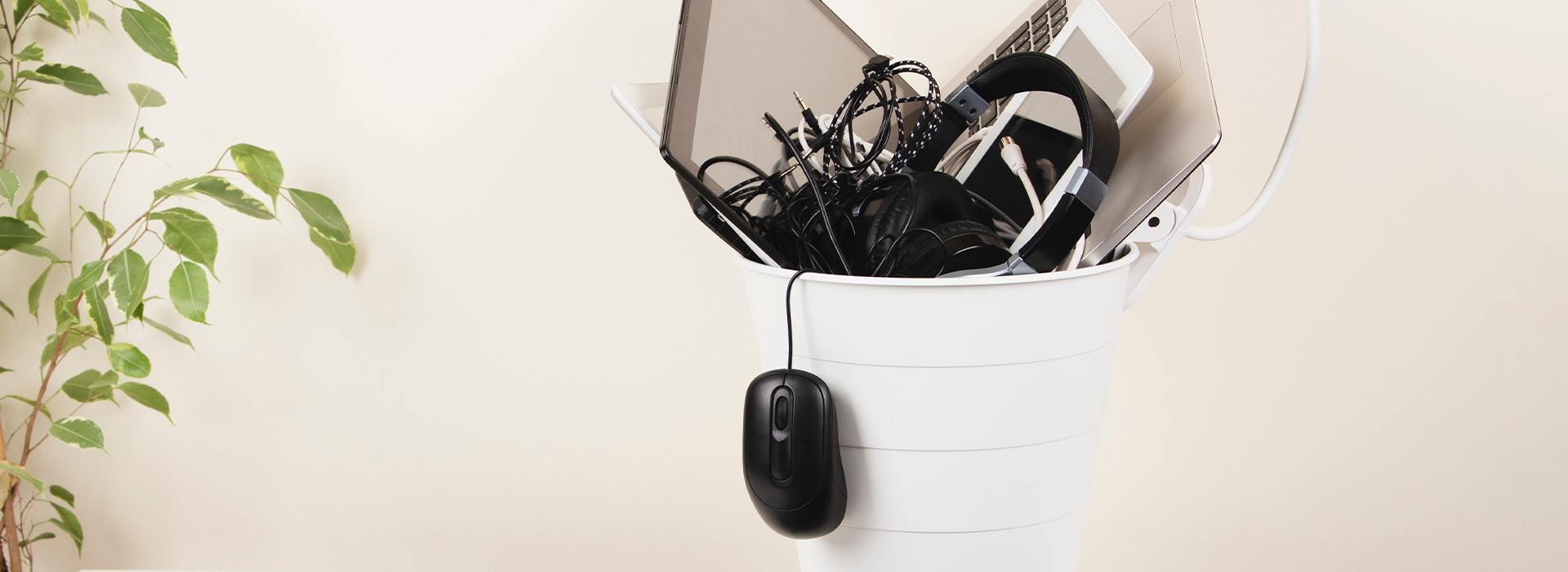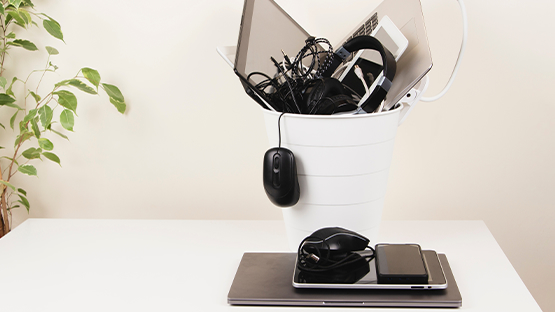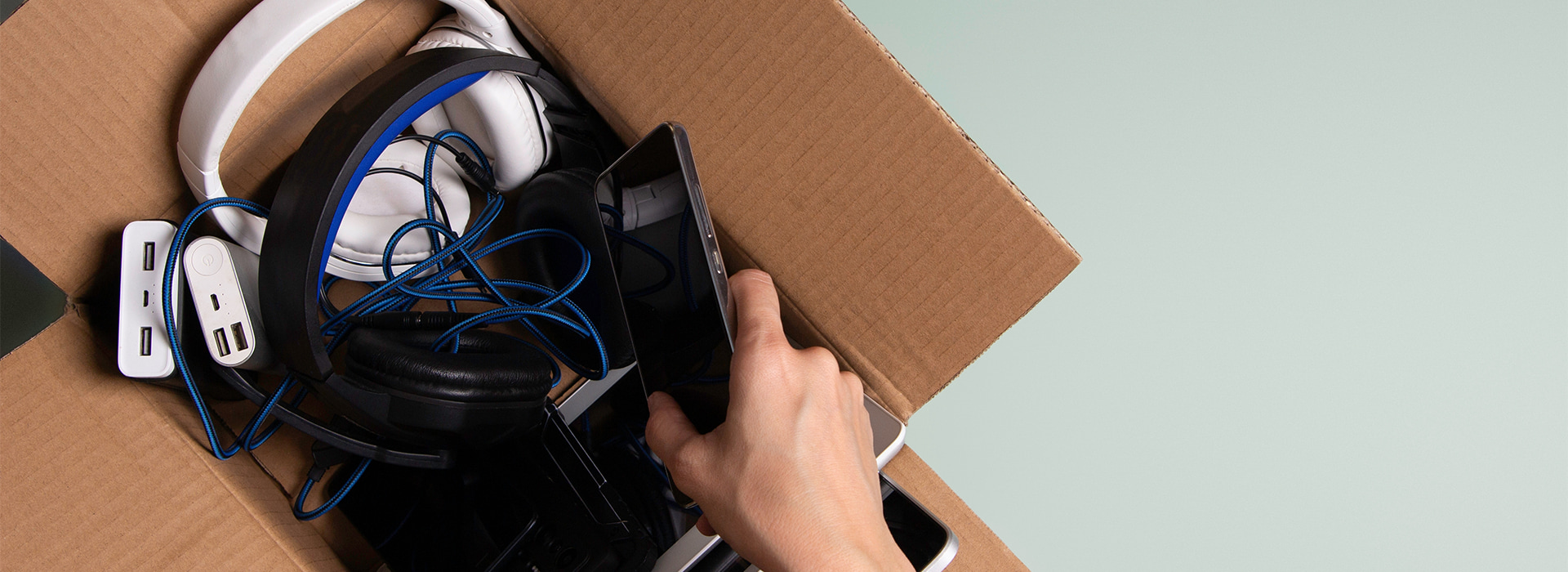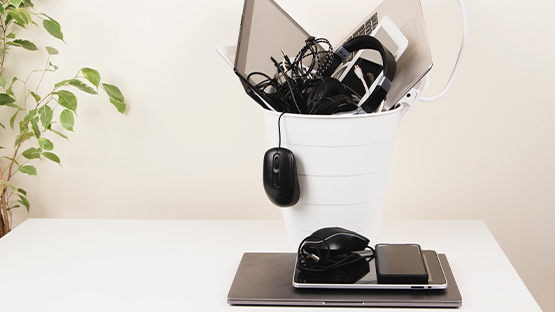Electronics recycling - what to do with unused equipment?
Ecology

19 January 2023
The increasing number of electrical and electronic appliances each year has contributed to the development of mechanisms for recovering raw materials from them for reuse. The disposal of equipment is also already a legal requirement in many countries. As a result, recycling electronics today is effortless. What does it look like?
Electronics recycling - how does it work?
Thanks to the efforts of states and international organisations such as the European Union, today recycling of electronic waste is carried out by, among others, local authorities. In Poland, too, in many municipalities, residents can hand in their old equipment at a designated location.
Pre-segregation of equipment is also carried out by private companies. Among them are companies for which this is the main business profile. In addition to them, some shops offer this type of collection.
The emergence of the electronics recycling business is a positive development. There is no shortage of companies that make money from processing electro-waste. They recover materials by dismantling equipment and separating components made of different plastics.
The parts are then segregated and sold to companies that convert them into further components. The dismantling and donation of raw materials enables the creation of parts for further equipment.
What materials can we obtain by recycling electronics?
Among other things, metals can be recovered from discarded equipment. For example, lanthanum is reused in the production of car batteries. The recovery of cerium is also useful in the automotive industry. This element is needed to construct catalytic converters.
Neodymium, in turn, is used to build motors for electric cars. This helps the environment in yet another way. Such cars reduce the carbon footprint. More and more individuals and companies, such as InPost, are benefiting from this.
The processing of electronic waste also makes it possible to produce new LCD screens. Europium is recovered for this very purpose. In turn, dysprosium is needed to create new computer hard drives.
Recycling gold from electronics is also very important. Its high chemical durability and low reactivity make it indispensable for the construction of precision laboratory equipment. In addition, it works well in aviation. Copper is also used in these industries.
It is not only metals that can be recovered from the recycling of electronic devices. Glass from screens and backs of equipment (e.g. from smartphones) can be used to produce further displays. Plastic is also widely used in many industries. 
Electronics recycling - is it viable?
Destroying or discarding electronic equipment in inappropriate places is not only dangerous for nature, but also unprofitable for the economy. In China alone, for example, around 5.5 million tonnes of copper are recovered annually.
This single example already shows that recycling electronics saves on the extraction of the metal's ore. Recycled copper meets less than ⅕ of the country's annual copper demand.
Specialised companies make large profits from recycling. This, in turn, allows them to provide jobs for people in many countries around the world. It is worth mentioning, however, that the electronics recycling market is in need of many changes.
Workers in many countries around the world perform their duties under poor conditions. Moreover, the waste disposal process itself is not environmentally friendly. Unfortunately, the profitability of recycling electronics does not go hand in hand with maintaining safety standards.
The treatment of residual equipment is only profitable if labour costs are very low, which is reflected in the conditions under which electronic parts are separated. Thus, while the processing of residual equipment itself should be supported as much as possible, regulations would be useful to improve the position of workers and the storage process of raw materials itself.
Where can we give away waste electrical appliances?
Although the recycling industry still needs a lot of changes, waste separation itself should not be abandoned. How do you start recycling electronics? Not at all by throwing it away. Whenever possible, devices should be taken to be repaired.
If the equipment cannot be repaired, it is worth checking whether your municipality recycles waste. In many towns, residents do not even have to carry anything to the collection point. On certain days and at certain times, cars come to the next housing estate to collect the equipment. Another way is to hand things in at, for example, an electronics market.
Mass consumption has created huge amounts of rubbish. This also applies to leftover electronic equipment. Fortunately, a service sector has emerged to collect, separate and reuse them. So when an appliance breaks down, it's worth finding out where you can return it to do your bit for a greener and kinder world.
InPost eco-returns - send your unused electronics via Parcel Machine®
As part of the service Eco-returns you can send a parcel of unwanted electronic equipment free of charge. Small electronics can be reused by others or useful to get the parts out and give them a second life.
Czytaj również






